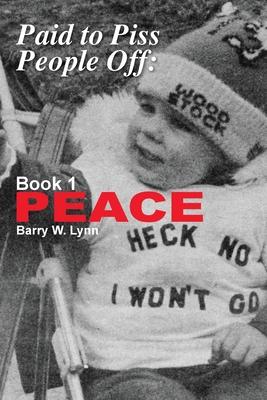In the first book of his three-volume memoir, Barry W. Lynn recounts his work as a clergyperson in the United Church of Christ and a lawyer practicing as part of the U.S. Supreme Court bar, working to get President Jimmy Carter to issue an Amnesty to those who refused to fight in Vietnam. His work extended to years of fighting against registration for the draft and introduced him to the veterans who were falling through the cracks. He also worked on cults and cultivated friendships with comedians and musicians, who kept him sane. His passion for correcting injustice and inequality guided his advocacy to legislators and to speaking on TV, talk radio, as well as to his podcast CultureShocks. He took on the high and mighty with his repartee and keen intelligence. Rich with photos and images, this memoir is funny and full of American political history. It is a reference book on the 1960s-80s battles over registration for the draft and on the individuals involved in the Carter, Ford, and Reagan Administrations and in Congress. It also is appropriate for courses studying opposition to the Vietnam War. Lynn's work helping young Americans who opposed that war informs today's Americans of their options and their right to choose a road less traveled because of their beliefs and convictions.

In the first book of his three-volume memoir, Barry W. Lynn recounts his work as a clergyperson in the United Church of Christ and a lawyer practicing as part of the U.S. Supreme Court bar, working to get President Jimmy Carter to issue an Amnesty to those who refused to fight in Vietnam. His work extended to years of fighting against registration for the draft and introduced him to the veterans who were falling through the cracks. He also worked on cults and cultivated friendships with comedians and musicians, who kept him sane. His passion for correcting injustice and inequality guided his advocacy to legislators and to speaking on TV, talk radio, as well as to his podcast CultureShocks. He took on the high and mighty with his repartee and keen intelligence. Rich with photos and images, this memoir is funny and full of American political history. It is a reference book on the 1960s-80s battles over registration for the draft and on the individuals involved in the Carter, Ford, and Reagan Administrations and in Congress. It also is appropriate for courses studying opposition to the Vietnam War. Lynn's work helping young Americans who opposed that war informs today's Americans of their options and their right to choose a road less traveled because of their beliefs and convictions.